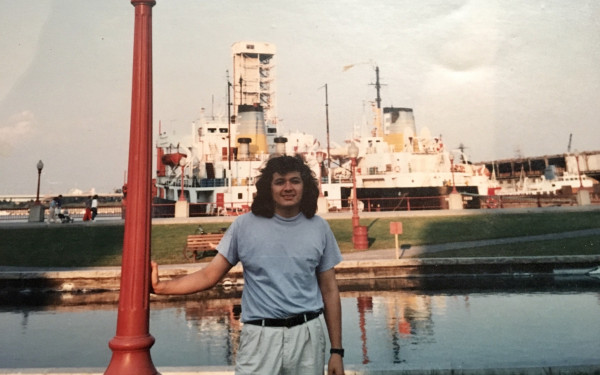Anglo writers on Montreal survival tactics
Every year, hundreds of young anglophone writers are lured to Montreal by English and creative writing programs and by the promise of living in a city with a vibrant and diverse cultural life.
And every year, hundreds of students graduate from those English programs and move back to cities like Toronto, where they seek out work as writers, playwrights and graphic novelists. For many, the challenges of trying to make a living as an Anglo writer in Quebec seem too great.
Blue Metropolis’s Reading The World From Montreal panel will feature four English-speaking writers discussing the difficulties of being an Anglo writer in Quebec. All four agree it can be difficult.
“Usually, writers need a ‘money job’ to support the writing habit,” said Claire Holden Rothman, author of the Giller-longlisted novel The Heart Specialist. “In a large, wealthy English-speaking city, you have many more job opportunities associated with the act of writing in English.”
Publishing and making contacts can also pose a problem. While Montreal has a few English-language publishing houses, the vast majority of publishers and literary agents are based in Toronto.
Sherwin Tjia, the writer and artist behind the graphic novel The Hipless Boy, explained one of the ways this can be problematic for emerging writers.
“Say you’re doing a reading […] and a publisher just happens to be there because one of their authors is on the bill, and you really impress them. They might come up to you afterwards and be all like, ‘Do you have a full-length manuscript you could send me?’ It’s that sort of thing. It’s the social milieu. And while there are some small publishers here, the big guns are in Toronto.”
Playwright Greg MacArthur explained how Anglo playwrights in Quebec face a different version of this problem. “There are very few companies here that are producing new [English] work on a professional level. Someone—I think it was Rufus Wainwright—once said that Montreal is a great city to create work in, but not a great city to produce work in.”
This is a major paradox many emerging writers looking to publish their first novel or produce their first play find themselves faced with; while it’s easier to be an Anglo writer in Toronto, it’s easier to be young and poor and writing in Montreal.
“Some days I think I would do much better professionally if I were in Toronto,” said Tjia. “But then my rent would go up, so would my bus pass, and I would have to start working full-time instead of three days a week.”
Despite this, all the panellists agreed that there are a number of benefits to living in a city where theirs is not the dominant language.
Elise Moser, author of the novel Because I Have Loved and Hidden It, pointed out that “many of us are here because we love to live in a multilingual place. We love language, not just English.”
Montreal’s cultural diversity also means writers “have the treasure of living in a city with the best French-speaking artists in the country,” said Rothman.
“There is a kind of ramshackle, DIY, get-up-and-go about people here which is lovely…Little cultural events seem to spring up like weeds, and instead of being wet blankets when you propose something fun and ridiculous, people are all like, ‘Why the fuck not?’” said Tjia.
Moser agreed. “I like it here. It’s a vibrant, culturally and linguistically rich society with
some very progressive values. Combine that with a relatively low cost of living and you get this bubbling musical, theatrical, literary stew.”
“Montreal’s an affordable and physically beautiful city full of largely playful, open, creative people,” said Rothman. “What more can you ask for?”
The Reading The World From Montreal panel takes place April 24 at 8:30 p.m. at Regence A of the Delta Centre-Ville (777 University St.). Admission is $5.
This article originally appeared in Volume 30, Issue 30, published April 13, 2010.





